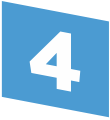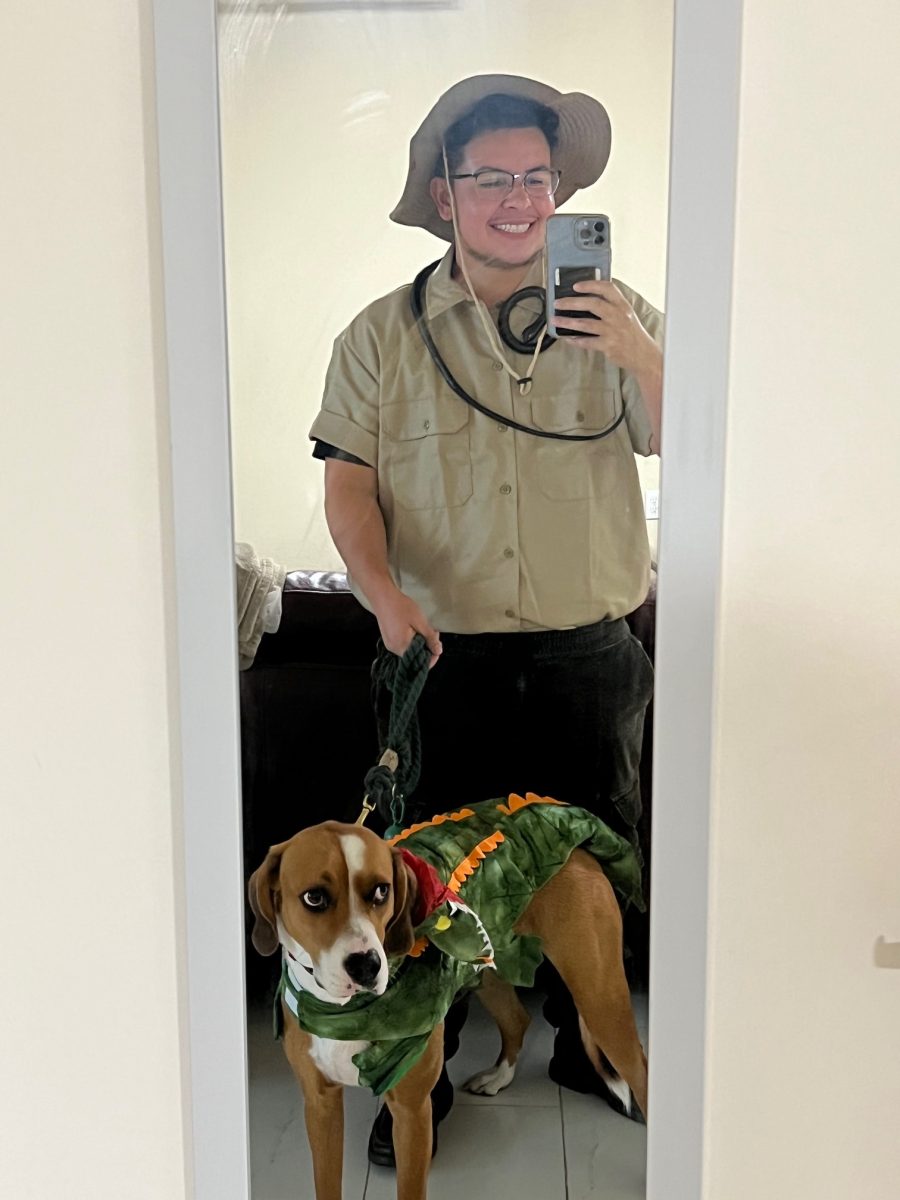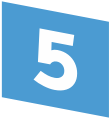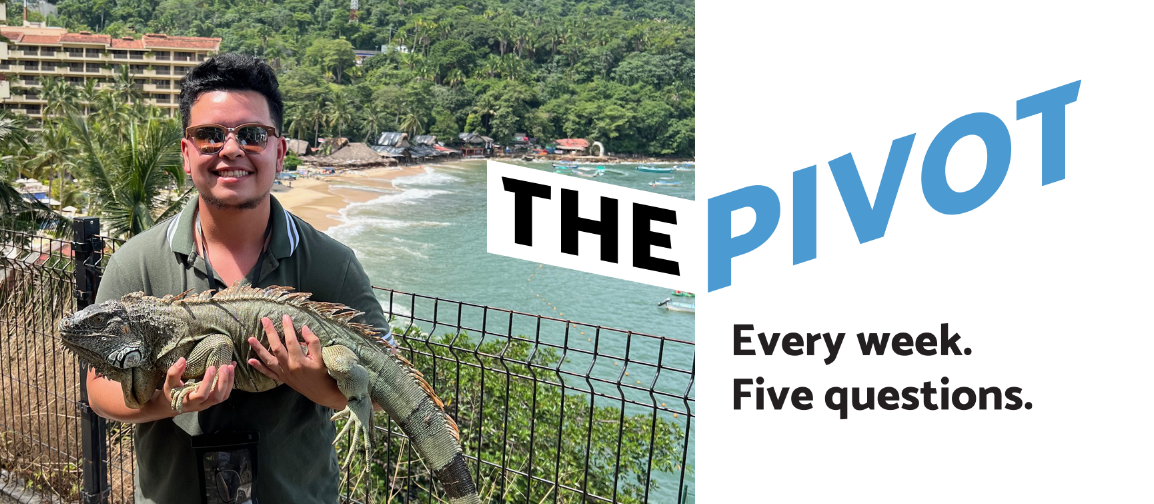Theo Beltran wants everyone to get what they need — health care is just the start.
Can you describe your focus area in one sentence?
I conduct research to understand how transgender people in the United States utilize health care and I advocate for more research to be led by folks with transgender experience.

What’s your role in public health?
I’m a doctoral candidate in the Gillings School’s Department of Epidemiology. I work at the intersection of social epidemiology and pharmacoepidemiology. My dissertation examines the health care utilization patterns of transgender people and measures their mental health over time.
I’m studying this by looking at insurance claims data for privately insured transgender patients across the U.S. Part of the research focuses on how transgender people adhere to regimens such as taking psychotropic medicines like antidepressants; another part seeks to measure the impact of psychotherapy on non-fatal self-harm.
What’s really exciting about this study is that I’m implementing a more sensitive algorithm that will better identify transgender patients through claims data even where there is no self-identified gender identity included. The study is also unique in how large the sample size is and that it’s longitudinal, including data from 2008 through 2020. That time span will give me a chance to explore how social and political themes may have impacted health care utilization trends among transgender people — for example, when Medicare/Medicaid began covering gender-affirming health services, many more claims emerged.
Ultimately, I hope this research will rationalize the need to ensure that transgender people get the care they deserve by making extremely clear how disparities by gender identity can lead to ongoing harm over time.

What brought you to public health?
Things accumulated for me, so I’ll start by telling my personal story because I want to remove shame from an experience that I share with many others.
When I was 14, I was diagnosed with “gender identity disorder.” All the systems and people around me were telling me something was wrong with me, and their feedback affected my learning, my mental health and my daily life. It was incredibly demoralizing to be told that my gender needed to be “cured,” and I eventually dropped out of high school because I desperately needed a change.
After going to a few different schools to catch up in order to graduate, I enrolled at a private school in East Menlo Park where I received more personalized attention and support that really helped my self-esteem. After that, I was accepted into UC San Diego, where I started off as a physics major. I joined the women’s rugby team and, even though I wasn’t officially out as queer or transgender, my teammates started inviting me to the LGBTQ Resource Center.
Around the same time, I was in an ethnic studies class and learned about intersectionality. All of a sudden, it was like my whole world and my life experiences made complete sense for the first time! I could see the invisible lines connecting different parts of society and how people are treated based on their race, gender and class. I became very passionate about making sure others who grew up like I did have access to language that clearly names their experiences so they can recognize and stand up to institutional violence.
I went on to get my MPH at UC Berkeley, which brought me back to the Bay Area. I lived with my grandma in Chinatown and needed a job, so I joined the San Francisco Health Department as a research associate. That experience shaped my career in a major way because it made me want to lead my own studies where I ask my own research questions.
The work I supported evaluated social determinants of health among transgender women, and it was great to get paid to talk with people from my own community. It gave me a deeper understanding of what other folks were going through on the ground, but my key takeaway was that most participants thought we should be asking more questions about their housing status.
“How am I supposed to get my new ID in the mail when I don’t have an address?”
“I’m actually doing this survey to make money so I can afford a hotel room to sleep in tonight.”
Comments like that helped me see that there’s a domino effect: If a young transgender person is kicked out by their family, their education may suffer. That makes it harder to get a job and their credit score may decline. That — plus discrimination — really limits housing opportunities.
It won’t come as surprise that my master’s thesis was all about housing stability and intersectional discrimination in the Bay Area. (For example, if you are both a racial minority and a gender minority, your risk of unstable housing goes up.) When I look at how that paper has since been used in policy making — cited as support for transgender-specific housing programs as well as a guaranteed income program — it’s beyond satisfying to know my work helped achieve real, positive impact.
To summarize that long narrative: I came to public health because we weren’t asking the right questions to dismantle upstream factors that drive health inequities.

Can you describe a time when you have pivoted in your public health career?
In 2020, I landed a summer job that I really wanted working with an organization that supports Asian American and Pacific Islander transgender and nonconforming people (Lavender Phoenix!). My family moved away from San Francisco due to gentrification, and I felt completely disconnected from Chinatown and my roots.
During the pandemic, I learned so much about community organizing for the first time and realized I could apply those approaches to both research and my work/life balance. I’d been doing so much data-based research that I felt removed from the community I was studying, and this job taught me how practicing vulnerability was essential to building meaningful relationships. I came out of that experience feeling so much more powerful in who I am and knowing there were so many others like me.

Theo and his dog, Calcifer, won first prize at a doggie day care Halloween costume contest.
It was also notable that, while many people struggled with isolation during the COVID-19 lockdowns, I thrived. Because I had been through crisis before and need a lot of social support to get through my day-to-day struggles of feeling excluded, I had already done a lot of work in building a robust network of friends who understand my experiences. During the pandemic, we stayed in touch in all kinds of ways, because the survival mechanisms I learned in life had given me the skills to connect, to share resources, and to provide and receive emotional support.
That’s my pivot: My past became a source of strength.

Who are you when you’re at home?
My friends would describe me as a very giggly person who is always down for an adventure. I like to hike with my fireball of a dog, Calcifer, and enjoy spontaneous days with friends where I drop by their place with boba and say, “Hey, we’re coworking today!”
My life looks like cooking and eating with friends, which is one of the best ways I know to build intimacy with my loved ones! It also looks like getting outside and exploring. My siblings would probably say they’re not sure I have long term hobbies, since I tend to get obsessed with one new thing after another for about six weeks at a time. Right now, I like to plant things and I get a lot of satisfaction out of serving as my family’s handyman and IT person.
I really like to help people, which is my core intention in my research and my personal life. I want everyone to get the resources and support they need — including, as I’m still working to remember, me.
Read more interviews in The Pivot series.
Published: June 26, 2023


